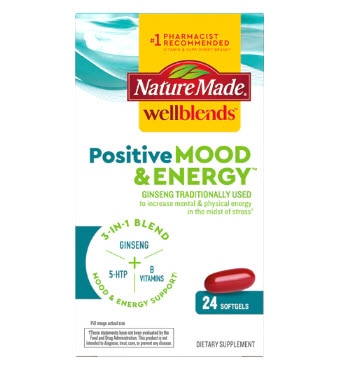You’ve got this. You know exactly what you need to do. You are worthy of what you desire.
If this sounds reassuring, rest-assured you are not alone. These simple statements can shift your focus away from a sense of inadequacy and direct your focus toward your strengths.
All this is to say, the voice inside your head matters. How we think about ourselves and talk to ourselves, i.e., self-talk, can have a huge impact on our sense of agency, will and competency. If you are interested in changing a habit, it requires a mini-intervention, oftentimes self-administered. Enter the affirmation.
What are health affirmations?
Positive affirmations are statements that are repeated to oneself with the aim of increasing self-awareness and promoting positive thinking. When used regularly, they can help to change negative thought patterns and beliefs and can improve mood and self-esteem.
Health affirmations are geared specifically toward your health, designed to reinforce wellness.
The question is, do health affirmations work? Research says they do, but not in the way you think. Think of them as a way to shift your mindset, rather than a way to magically improve your health. Research shows that a an affirmation practice actually activates the brain’s reward system— the same system that responds to sex or drugs or sweets—especially when the affirmations were oriented toward the future, such as I will eat more healthy this year.
“Affirmations are associated with increased levels of behavior change,” says Chris Cascio, an assistant professor at the School of Journalism and Mass Communication at the University of Wisconsin at Madison, who researches self-affirmation, possibly because they are geared toward seeing the bigger picture.
One of the basic ways affirmations work is by increasing the focus on sources of positive value to individuals. Self-affirmation interventions often rely on reflecting on personal core values and rewarding experiences. By thinking about all the good things in your life, for example, such as family and friends, may set the tone for affirming your ability to stop engaging with bad habits, such as drinking or smoking. Reflecting on your values puts you in a better state of mind, capable of making good decisions and amenable to productive health goals.
These core values not only reinforce your current identity, but they also carry forward to your future identity. “Hypothetical abstract future events, in general, are beneficial for human beings,” says Cascio. That’s what makes affirmations work, the catalyzing effect of the future, rather than “the idea that merely saying something nice to yourself can make magical things happen.”
He added that his work found that affirmations related to “future-oriented values” — for example, if family is a core value, you could think about time you’re planning to spend with them—were “much more beneficial in terms of the affirmation’s success compared to thinking about the past,” because doing so engaged the value and self-processing regions of the brain to a greater degree.
How to craft effective health affirmations:
Speak to your values
Identify in concrete ways, the things about your health that you really value (think being active or flexible or getting enough sleep). Your affirmations should reflect your beliefs about health.
Affirm your enoughness
Don’t use the affirmation to help you pursue perfectionism. People tend to mistakenly think affirmations are about seeking perfection or attaining greatness, says Cascio. Instead, Cascio says, the key concept of affirmations is this: You are valued just by being you.
Focus on what you love
Affirm who you are by focusing on what you love, such as: I love feeling healthy. For an added bonus, put your affirmations in the present tense, to remind you of what you can do right now to create the future you want.
Customize your affirmation
Make sure your affirmation reflects your own values, rather than being a stock affirmation you came across on the internet. An affirmation specifically tailored to your objectives will be the most convincing. Also, stay clear of affirmations that you don’t believe to be true. Ultra-positive affirmations, such as “I am an unstoppable force of nature” can fail because they are not entirely convincing. Aim for something more specific, along the lines of “I have the power to keep picking myself up,” that land with more congruence.
Build a daily affirmation habit
The research shows that it’s helpful to take time for affirmations before stressful situations. But in general, having a regular values-affirming practice can help with self-regulation.
Once you have chosen a few affirmations that are tied to your long-term health goals, set aside a few minutes a day to repeat your affirmations to yourself. First thing in the morning is a great time of day to set your intentions for the day and affirm your values.




